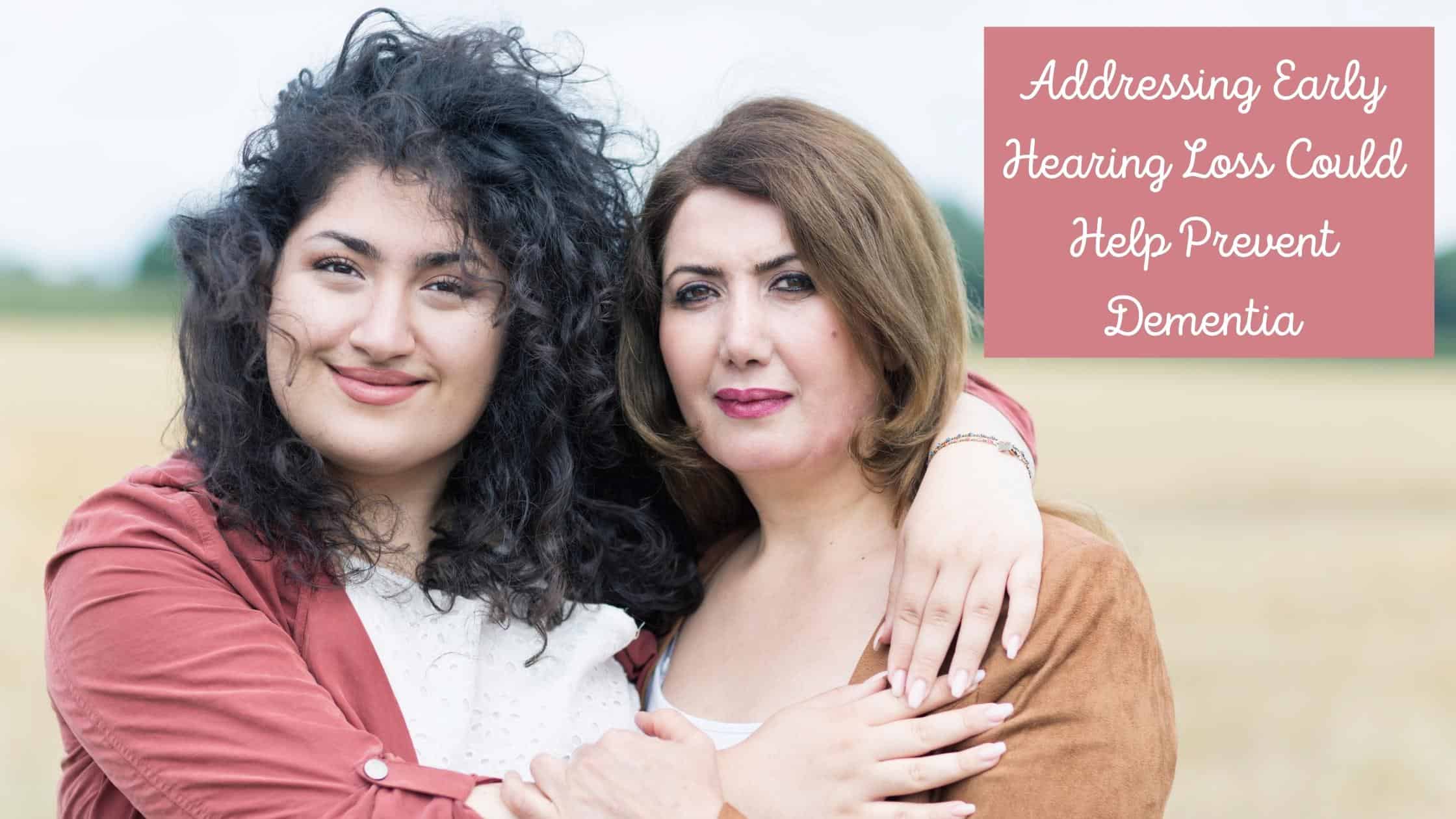
- Common Misconceptions That Delay Hearing Loss Diagnosis - June 6, 2025
- Signs Your Earwax Buildup Needs Professional Attention - May 29, 2025
- Preparing for a Hearing Test and What You Should Bring - May 16, 2025
Do you struggle with the people around you and find you are having to ask them to repeat themselves often? You may already suspect this could signal the early stages of hearing loss and not give it much thought. After all, a little hearing loss can’t be too harmful, right?! In all actuality, nothing could be further from the truth. Hearing loss isn’t just an ear issue but allows you to communicate clearly and be more aware of the world around you. If unaddressed, even a slight hearing loss can lead to cognitive decline and increase your risk of dementia.
What is Dementia?
Dementia is a neurodegenerative disease that affects two or more brain functions such as memory, thinking, the ability to perform everyday activities and behavior. It can be devastating for individuals, but even more damaging for loved ones who over time not only lose the person they’ve always known but must figure out around the clock care. This disease is all too common, affecting 5.6 million aged 65 and older in the US alone. The World Health Organization (WHO) reports that someone is diagnosed with dementia every 3-4 seconds worldwide equaling equals 7-9 million new dementia diagnoses annually.
Preventing Dementia
While there is currently no cure or way to reverse dementia, it is believed that there are contributing factors that increase likeliness. Some of these, such as age and family history can’t be modified while others, such as can. In 2017 the Lancet Commission on dementia prevention, intervention, and care identified several modifiable risks factors that increase the likeliness of developing dementia later in life. While modifying one of these factors can lessen the risk, the more you address it simultaneously, the better. Some modifiable risk factors increasing the likeliness of dementia include:
- Lower levels of education, particularly before the age of 21
- Hypertension,
- Smoking Tobacco,
- Depression,
- Physical inactivity,
- Diabetes
- Loneliness
Hearing Loss and Dementia
Another risk factor that was identified by the Lancet Commission was hearing loss. While the connection may not immediately seem clear, its root starts in how sound is processed in the brain. When the brain doesn’t receive all the audio information it needs it strains to fill in the blanks. Even when hearing loss is mild, your brain still struggles to fill in parts of words or parts of sentences. This not only causes listening fatigue but can cause people to avoid social interactions over time in favor of isolation. Isolation quickly leads to under-stimulation of the brain and even brain atrophy when parts of the brain aren’t regularly stimulated.
Connecting Hearing Loss and an Increased Risk of Dementia
A study led by Dr. Frank Lin at Johns Hopkins University explored the connection between these two connections hoping to quantify it. Starting with a study of 639 participants 12 years, the study surveyed participants biannually to determine shocking results – especially for those who choose to avoid addressing a hearing loss. The study found that even a mild case of hearing loss doubled the risk of dementia, while a moderate case tripled the risk. For study participants with severe hearing loss, avoiding treatment of hearing loss created a five-fold risk in the development of dementia!
Treating Hearing Loss
While most forms of hearing loss are permanent it is a condition that can have less impact on all areas of your life when you address it. While people have all sorts of varying degrees and needs around hearing loss, the most common treatment are hearing aids. These amazing electronic devices fit around or in the ear canal and can be programmed to amplify only the sound, tones, and pitches you struggle to detect, based on a hearing exam.
Benefits of Hearing Aids to Fight Dementia
Using hearing aids allows you to end the chapter of your life where you struggle to hear what others say. You no longer need to feel confused, anxious, or disengaged when speaking to loved ones, friends, family, and co-workers. Instead, studies show that treating hearing loss with hearing aids, lowers the risk of dementia significantly. Other benefits of treating hearing loss are lower risks of depression and avoidance of physical activity. Conveniently alleviating these risk factors also coincide with health risk for preventing dementia.
Act Now!
The sooner you act the better. If you suspect that you have even a slight hearing loss, why not address it today? Schedule a hearing exam and join the fight against dementia!
